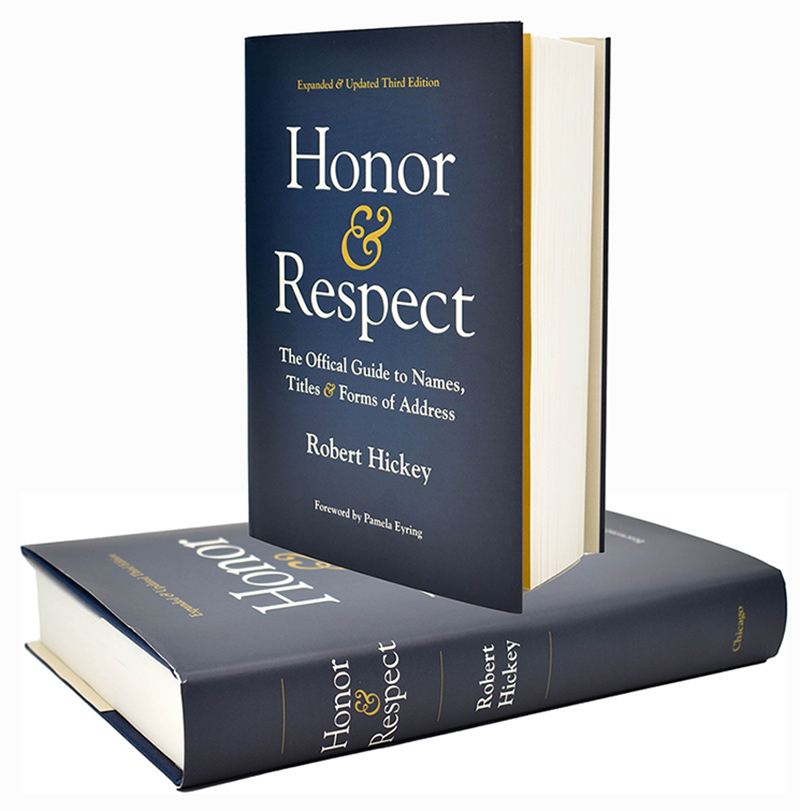____
Robert Hickey’s On-Line
Guide to Forms of Address
At right on desktops, at the bottom of every page on tablets and phones, is a list of all the offices, officials & topics covered on the site. These postings are a combination of forms of address for the most searched for officials and replies to questions sent to Robert Hickey, Deputy Director of The Protocol School of Washington® and author of Honor & Respect: the Official Guide to Names, Titles, and Forms of Address.
The book is over 550 pages of government, military, religious, academic, diplomatic and other forms of address. What is on the site is but a small fraction of what’s in the book. For more correct forms of address for other official on invitations, place cards, name badges, introductions, conversation, and all other formal uses, refer to Honor & Respect: the Official Guide to Names, Titles, and Forms of Address.
Robert Hickey author of “Honor & Respect”
Trending Searches
Here are recently top-ranked topics on this site.
- How to Write the Names of Deceased Persons
- How to Address Retired Military Personnel
- How to Use a Doctorate with Your Name
- How to Address a Medical Doctor (M.D.)
- How to Address a Professor
- How to Address a State Representative
- How to Address a U.S. Representative
- How to Use the Honorable
- How to Address a Lawyer
- How to Use Post-Nominal Abbreviations
- How to Address a University Dean
Don’t see what you are looking in this list? Look at the full list in blue at right if you are reading this on a desktop, at the bottom of this and every page on a tablet or phone.
Robert Hickey author of “Honor & Respect”
Recommended Resources: The Protocol School of Washington (PSOW) and Protocol and Diplomacy International – Protocol Officers Association (PDI-POA) For more information see the Protocol Resources page.




